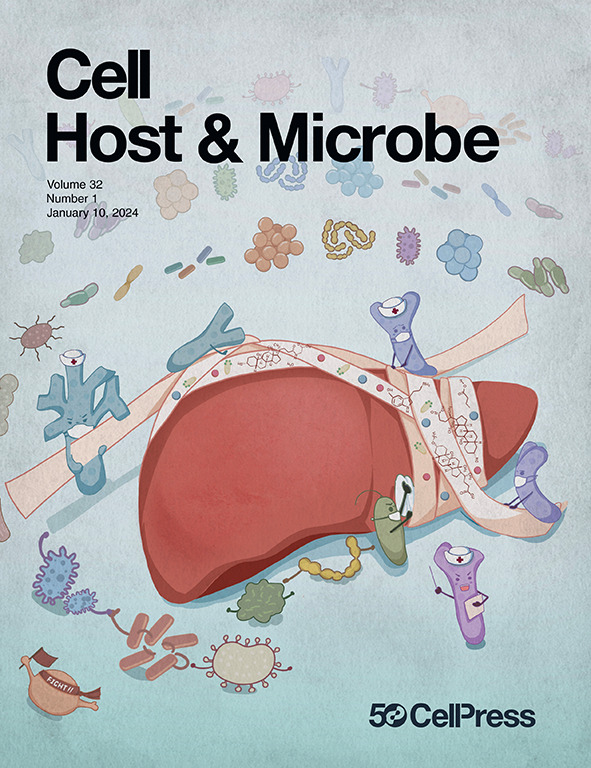翻译中的迷失:剖腹产抗生素与婴儿微生物组
IF 20.6
1区 医学
Q1 MICROBIOLOGY
引用次数: 0
摘要
在本期《细胞宿主与amp; 微生物》(Cell Host & Microbe)杂志上,辛哈(Sinha)等人介绍了他们进行的随机试验,该试验评估了剖腹产前服用抗生素是否会破坏婴儿的微生物组。尽管新生儿在剖腹产前服用了抗生素,但婴儿的微生物组没有发生明显变化,尤其是与母乳喂养相比。本文章由计算机程序翻译,如有差异,请以英文原文为准。
Lost in translation: Cesarean antibiotics and the infant microbiome
In this issue of Cell Host & Microbe, Sinha et al. describe their randomized trial assessing whether antibiotics given for maternal benefit prior to Cesarean disrupted the infants’ microbiomes. Despite pre-incision antibiotics reaching the neonate, there was no meaningful alteration to the infant microbiome—especially when compared with breastmilk feeding.
求助全文
通过发布文献求助,成功后即可免费获取论文全文。
去求助
来源期刊

Cell host & microbe
生物-微生物学
CiteScore
45.10
自引率
1.70%
发文量
201
审稿时长
4-8 weeks
期刊介绍:
Cell Host & Microbe is a scientific journal that was launched in March 2007. The journal aims to provide a platform for scientists to exchange ideas and concepts related to the study of microbes and their interaction with host organisms at a molecular, cellular, and immune level. It publishes novel findings on a wide range of microorganisms including bacteria, fungi, parasites, and viruses. The journal focuses on the interface between the microbe and its host, whether the host is a vertebrate, invertebrate, or plant, and whether the microbe is pathogenic, non-pathogenic, or commensal. The integrated study of microbes and their interactions with each other, their host, and the cellular environment they inhabit is a unifying theme of the journal. The published work in Cell Host & Microbe is expected to be of exceptional significance within its field and also of interest to researchers in other areas. In addition to primary research articles, the journal features expert analysis, commentary, and reviews on current topics of interest in the field.
 求助内容:
求助内容: 应助结果提醒方式:
应助结果提醒方式:


